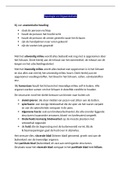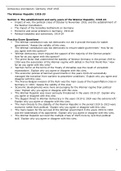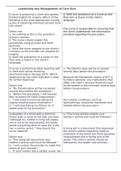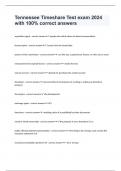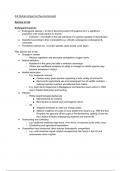Overig
Mock multiple Choice Test for History of Ancient Philosophy
- Vak
- FTR-FIPPSB109
- Instelling
- Radboud Universiteit Nijmegen (RU)
This is a mock multiple-choice test you can use to test your knowledge of Ancient Philosophy, made following the content of the lectures in 2022 but it does not vary as much from year to year.
[Meer zien]





